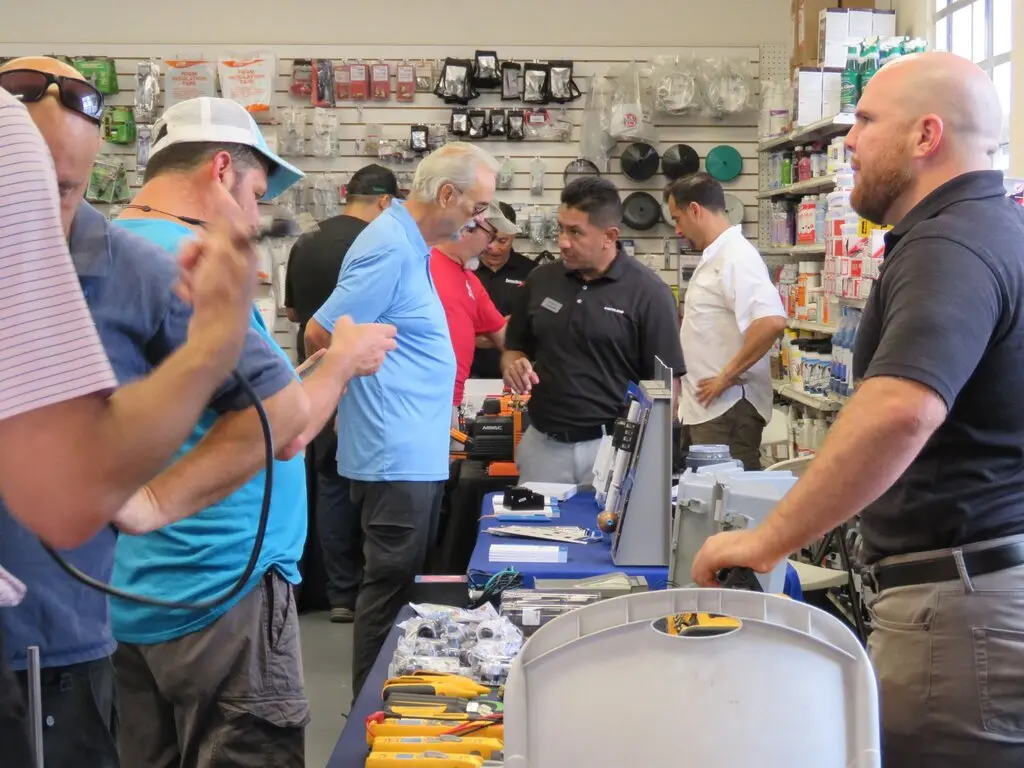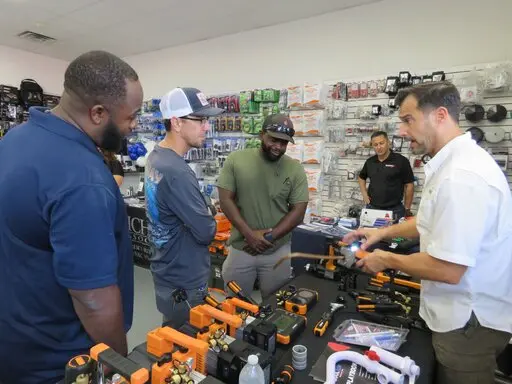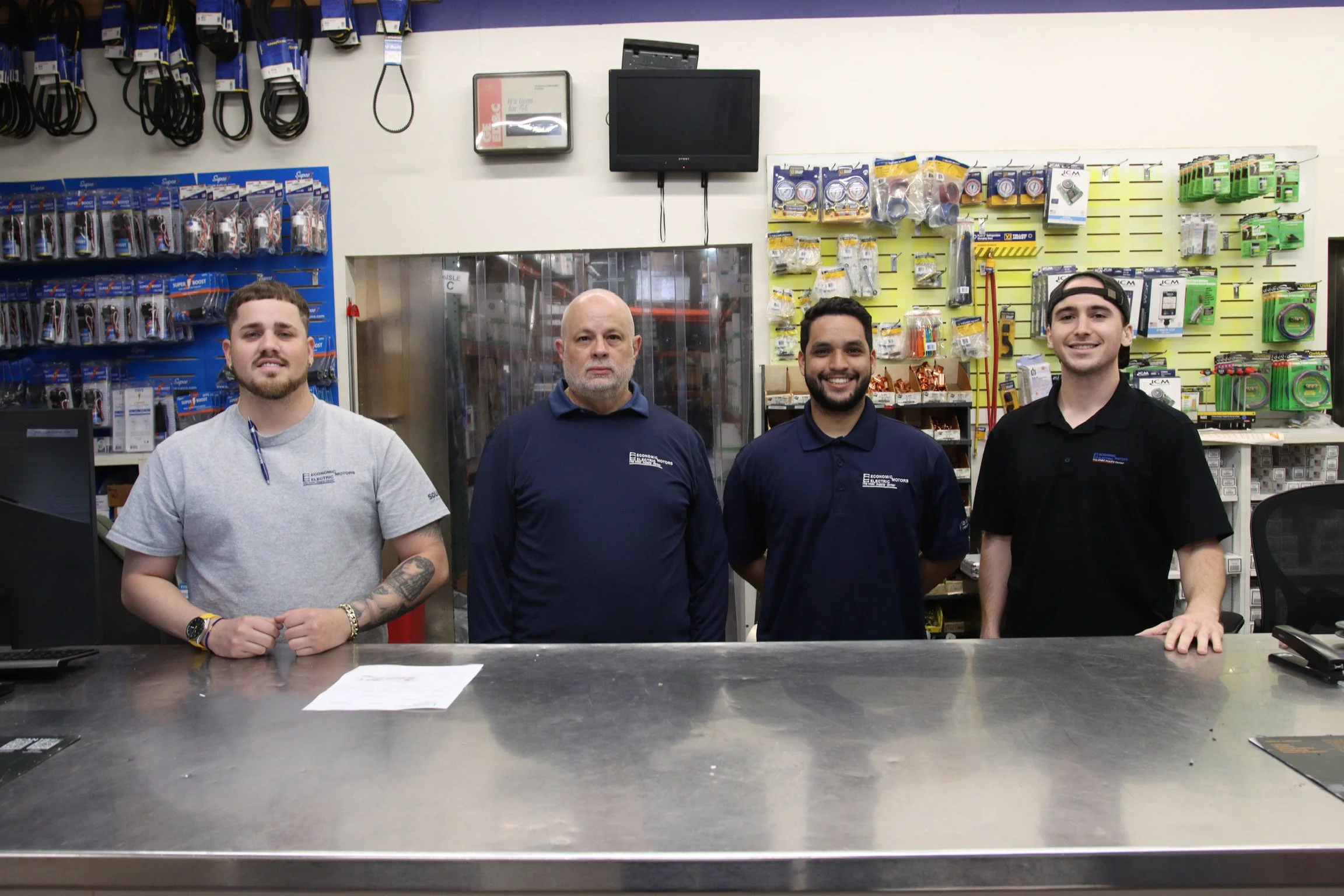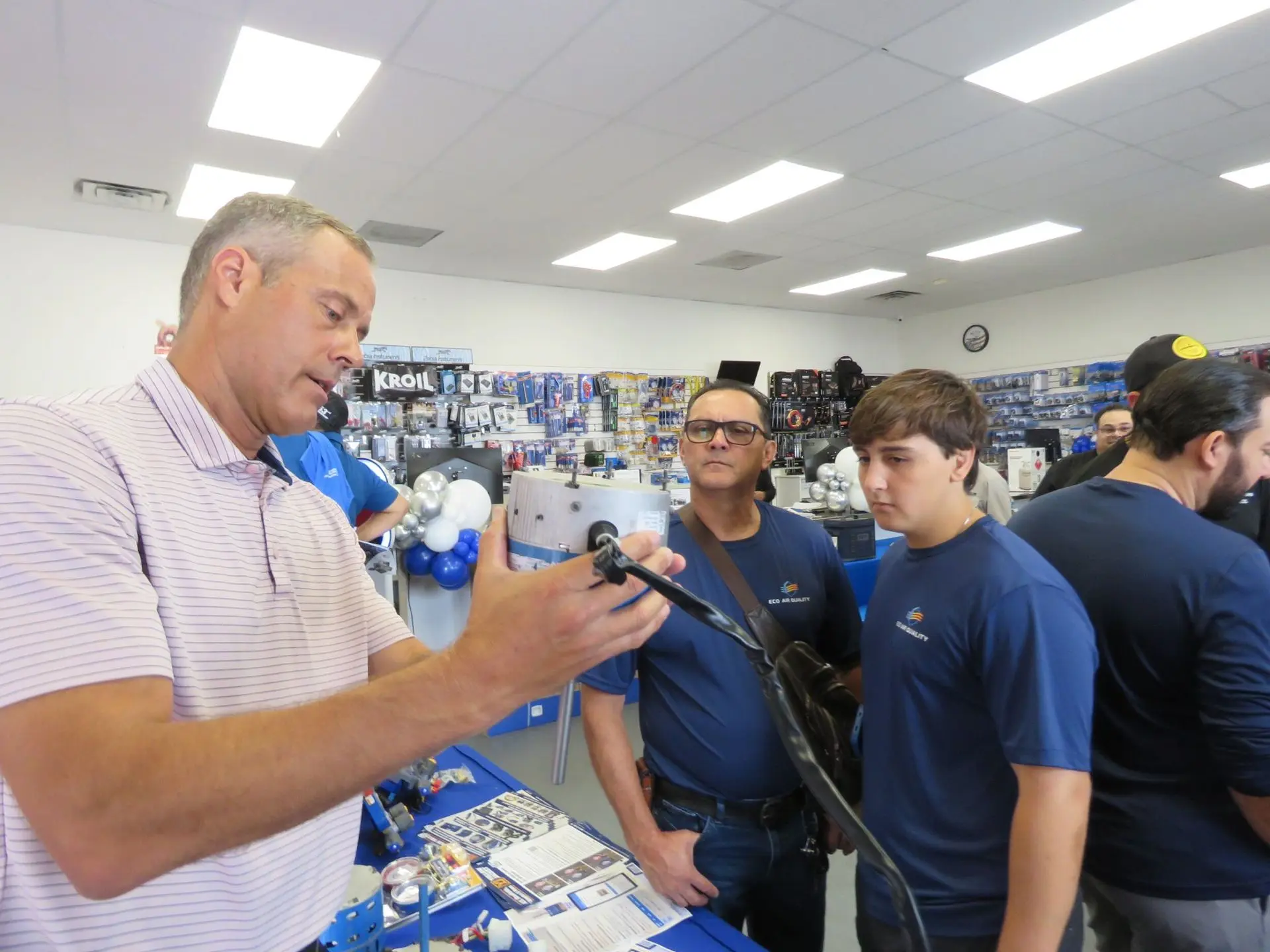Economic Electric Motors has been a trusted partner for HVAC professionals across Florida for more than 50 years. When the company needed a modern ERP solution that could keep up with its expansion and unique customer service model, it turned to Odoo. The result? Greater efficiency, easier collaboration, and measurable growth even during challenging market conditions.
Founded in 1972 by Allen and Barbara Alavi, Economic Electric Motors began as a small motor repair shop. Over the decades, it expanded into a full-service HVAC wholesaler, proudly serving both technicians and local governments. The company’s philosophy is simple but powerful: pair high-quality products with knowledgeable staff who can guide customers in making the right purchasing decisions.
Today, Economic Electric Motors operates seven locations across South Florida, from Cutler Bay to West Palm Beach, and is preparing to open a new facility in Orlando. With 38 employees, the family-owned company remains dedicated to providing personalized service, offering a one-stop shop where clients not only buy equipment but also gain valuable insights on product alternatives.

"We’re kind of like a one-stop shop for both learning your alternatives and becoming knowledgeable on the products and then buying those products.”

Before Odoo:
Outdated Software, Limited Options
Like many growing companies, Economic Electric Motors faced operational roadblocks caused by outdated systems. For years, the team relied on Sage, but its closed architecture limited customization and innovation.

“Customization was our biggest pain point,” Ryan recalls. “There was no opportunity to create our own solutions without going through a complicated developer program.” The company needed an ERP that not only recorded and tracked user actions but also allowed internal development and extensions to fit its unique workflows
"Everyone liked Odoo better. It’s more refined and more user-friendly than ERPNext, and it gave us the freedom to build what we needed."

When evaluating alternatives, Ryan introduced ERPNext and Odoo as possible solutions. Meanwhile, leadership had experience with large-scale systems like SAP and Oracle from previous roles, but was not interested in going back to heavyweight, expensive platforms. Ultimately, the team chose Odoo for its flexibility, user-friendly design, and open-source foundation.
Odoo in Action: Transforming Operations
Across the Board

Economic Electric Motors first implemented Odoo in October 2023, and the transition quickly proved to be a turning point for the business. Ryan, who had discovered Odoo years earlier while experimenting with open-source software during school, spearheaded the implementation.
The company uses a wide range of Odoo applications, including:
- Sales: daily operations, quoting, and invoicing
- Accounting: integrated with Stripe for seamless reconciliation and payment links
- Purchase and Inventory: managing supplier orders and stock tracking
- Contacts (extended as CRM): for mailings, notifications, and customer updates
- Project: internal task and project tracking
- Website: public-facing but planned for expansion into product listings
- Sign: for occasional use with document signatures
One of the most popular features among employees is Chatter, Odoo’s built-in communication tool. Staff can tag colleagues, attach documentation, and maintain a clear record of conversations directly within tasks or documents. This eliminated the need to dig through endless email chains.
The email integration within Odoo also allows the team to generate and send invoices instantly using templates. In the past, employees had to download PDFs, draft emails manually, and attach documents, tasks that took hours each week. Now, invoices go out in just a few clicks, and the system automatically records their status.

In addition, previously, Economic Electric Motors lacked a customer-facing platform. Odoo’s portal changed that, enabling customers to view invoices online, make payments through Stripe, and track their statements. Automatic monthly statement distribution alone saved the company an entire workday each month for one employee.
For Ryan, Odoo’s developer tools and customization options are a major advantage. “I don’t even have to get out of the system,” he explained. “I can edit the views inside Odoo with debug mode on. That flexibility is huge for us.”
Perhaps the most significant impact has been on the bottom line. Since implementing Odoo, Economic Electric Motors achieved 28% year-over-year growth, even as competitors faced declining sales. The company credits Odoo’s efficiency and automation with enabling its staff to spend more time serving customers.

"We’ve seen about 28% growth in a period where much of our competition has experienced regression. A large percentage of that has to do with what Odoo has allowed us to do."
Looking Ahead: Expanding Operations and Odoo Usage

With seven locations already and an Orlando expansion underway, Economic Electric Motors is set to continue growing across Florida. The company plans to upgrade to Odoo 18 in the near future, expanding the use of its website to showcase products more effectively to customers.
On the technology side, Ryan has his eye on Odoo’s Employees and Payroll applications. Currently, the company spends significant time and money managing payroll manually and through third-party providers. “Payroll, time, and attendance could all be done inside Odoo,” he explained, noting that future adoption could streamline HR processes just as Odoo transformed sales, accounting, and inventory.
Economic Electric Motors’ story shows how a growing company can modernize its operations, save hundreds of hours of manual work, and boost growth with the right ERP system. If your business faces similar challenges with outdated systems or lack of customization, Odoo can provide the flexibility, efficiency, and growth opportunities you need. Explore the possibilities today and take your operations to the next level, just as Economic Electric Motors did.


